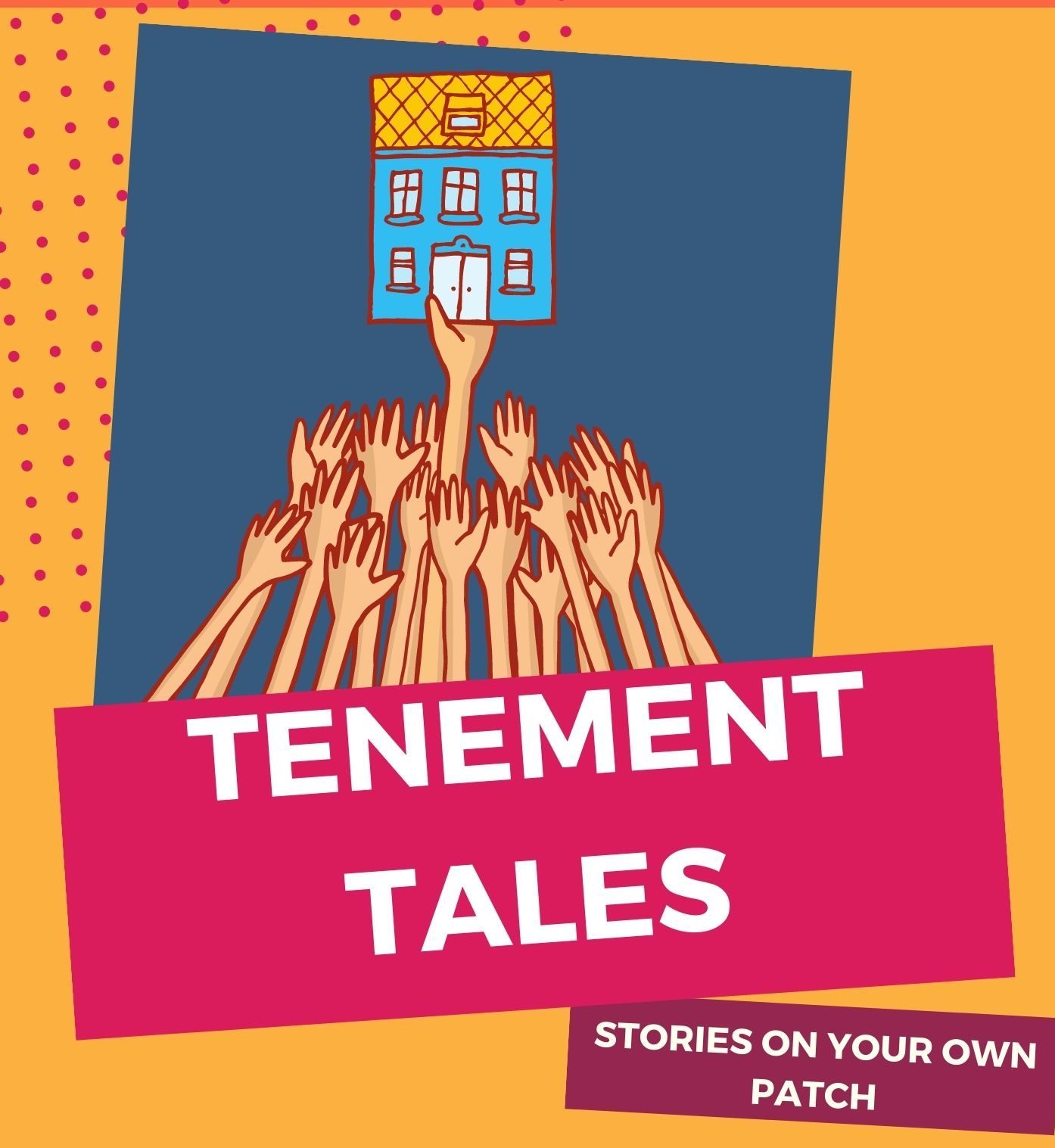In the shadow of the 650 year old Preston Tower, I told short tales to older residents of Prestonpans in East Lothian, accompanied by musician and storyteller Alan Hunter.

“felt like she had a box seat in a theatre…”
The goal of Tenement Tales was to make stories, connections and live entertainment accessible and safe at a time when Covid had made face to face telling virtually impossible. It also offered residents a chance to listen from windows, perfect for folk who were perhaps feeling apprehensive about stepping back into larger gatherings again.
I chose the sheltered housing complex because older people, sometimes isolated at the best of times, have been particularly affected by the isolation of Covid restrictions. The idea of Tenement Tales was to tell stories outside people’s windows, so they would be safe and not even have to leave their home.
This complex was ideal for this and most homes had a window looking out to a shared green or small green area, and so we pitched in view, after having informed the residents of our plans to come.
Storytelling is about more than a story. The story is important of course, but just as important is the connections that the storytelling makes. The ability to tell a tale eye to eye, mind to mind and heart to heart. Having the the listener close, yet safe was a wonderful experience for Alan and I but I believe it was also for those who tuned into the stories and songs.
The songs were vital in my opinion. Alan chose songs connected to local history; songs about the battle fought nearby in 1745, songs about fishing and mining. These songs were recognized by listeners such as Theresa and Wille. Theresa had mobility issues and spent most of her time by her window. She told me she had really enjoyed the sessions and it felt like she had a box seat in a theatre. She would make us coffee and give us biscuits, her way of contributing to the atmosphere of shared hospitality and at times it felt like a bit of a Ceildh.
I told mostly local tales, and Theresa began to share some of her own stories from her childhood. I asked if she would like to have the stories I told in written form and she said she would so I wrote and printed them out in larger type for her. As we left after the final session and walked past her door, we saw her already reading one of the stories. Later, when I came back to say hello with some of my kids after the project, she told me she had shared the stories with one of her carers.
Willie was another resident who engaged well. He was an ex‐miner, and he had an interest in history in general. I told him tales from the pit but he out did me by coming out of his house and sharing some stories of his own. He would sit at his kitchen window to listen to the stories and gave requests for songs.
Other residents, such as Gary, would come out and listen, and while we spoke to as many people as possible, I had a feeling that the project was beginning to really establish some good relationships and if it continued, there would be great benefits for all.
Relationship is the key word I believe. The stories and songs were enjoyed, but as Theresa explained, the fact we were coming and sharing these things showed they were not forgotten and through our connections, local stories lived on.




Tenement Tales enabled local storytellers to share stories in outdoor domestic spaces where local residents opened their windows, or gathered safely, to hear free tales in an environment that was secure and familiar to them. As well as running in East Lothian, the project also ran for a series of three weeks in Leith, Edinburgh.
This project offered joy, entertainment and distraction during times of lockdown and at a time of transition when lockdown was ending and the venture into live performances may have been a somewhat stressful experience.
The project is a contemporary way of accessing storytelling but celebrates the tradition of the storyteller being at the heart of the community. The initial pilots were able to take place due to support and funding from the Tasgadh Small Grants for Traditonal Arts.






